People Share Things That Were Normal 20 Or 30 Years Ago But Are Considered A Luxury Now
"Paying no more than 30% of your income in rent"

Over the past 20-30 years, our society has experienced significant shifts in what was once considered normal. The advent of technology, changing economic landscapes, and evolving social dynamics have reshaped our perceptions of everyday life.
What was once taken for granted as a basic necessity has now transformed into a luxury for many. One notable change is the way we connect with others.
In the past, human interaction was primarily face-to-face, and customer service was often a personal and attentive experience. However, in today's fast-paced, technology-driven world, the human touch in customer service has become increasingly rare.
The convenience and efficiency of automated systems and online transactions have replaced genuine connections with service providers. Additionally, the concept of ownership has undergone a significant transformation.
In the past, one-time purchases were the norm, and durable household products were built to last for decades. However, the rise of the subscription-based model has shifted our approach to consumption.
Now, many goods and services are offered through recurring subscriptions, making ownership a luxury rather than a common practice. Moreover, the affordability of basic needs and essential services has become a growing concern.
Rising costs of healthcare, housing, and education have made these fundamental necessities more elusive for many individuals and families. What was once accessible and affordable now requires significant financial resources, contributing to a sense of everyday life becoming a luxury.
These examples represent only a fraction of the many challenges that have become increasingly difficult for a significant portion of society to attain in today's world.
Unplugging from constant availability
 Reddit
RedditSubscription-free items
 Reddit
RedditHuman connection in customer service
 Reddit
RedditFrom one-time purchase to subscription-based
 Reddit
RedditSocial avoidance
 Reddit
RedditGenuine friendships based on companionship
 Reddit
RedditDurable household products, lasting for decades
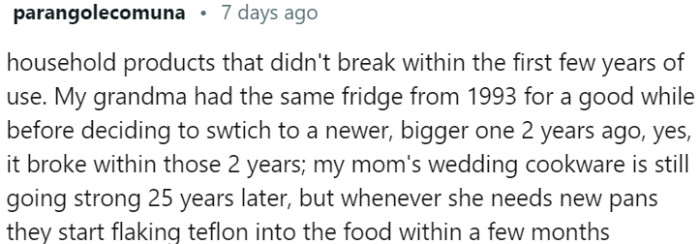 Reddit
RedditQuality fabrics lasting longer
 Reddit
RedditFamily vaccations
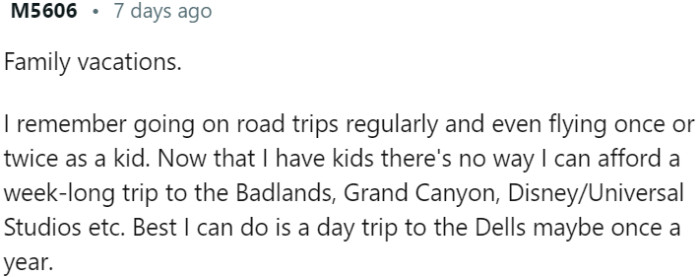 Reddit
RedditCompany-funded pensions in the private sector
 Reddit
RedditAffordable health insurance
 Reddit
RedditLong-lasting appliances
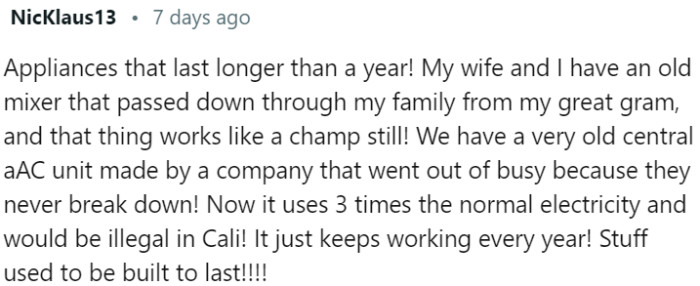 Reddit
Reddit
Owning land
 Reddit
Reddit
Single income supports a family of four
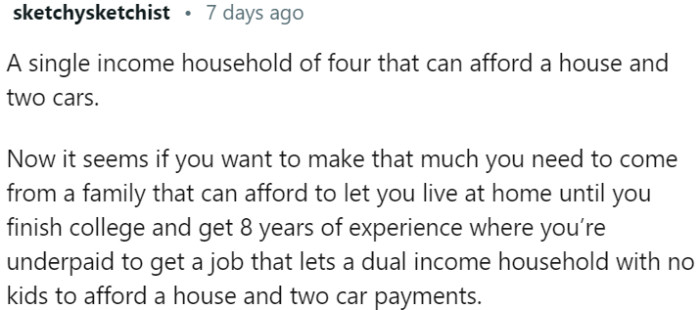 Reddit
Reddit
Everyday life has become a luxury
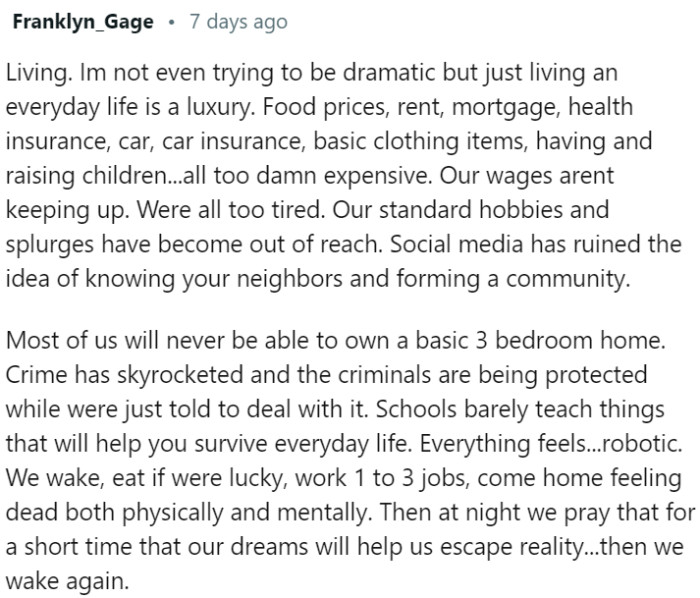 Reddit
Reddit
The affordability of basic needs and essential services
 Reddit
Reddit
Work-life balance
 Reddit
Reddit
Changing affordability of essentials and lifestyle aspirations
 Reddit
Reddit
The erosion of privacy in public spaces
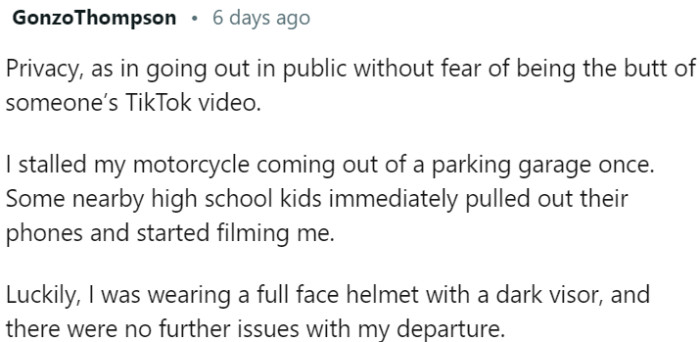 Reddit
Reddit
Debt-free graduation
 Reddit
Reddit
Time
 Reddit
Reddit
Overall, the changes experienced over the past two to three decades have reshaped our understanding of what is considered normal. The shift towards automation, the erosion of privacy, the changing affordability of essentials, and the increasing demands of a fast-paced society have transformed once-common aspects of life into luxuries.
As we continue to adapt to these changes, it is important to reflect on the evolving nature of our world and the impact it has on our everyday experiences. As we reflect on these changes, it is essential to recognize the impact they have on our well-being and collective experiences.
While progress and innovation have brought many advancements, they have also given rise to new challenges and disparities. It is crucial to find ways to navigate this evolving landscape, advocate for accessibility and affordability, and ensure that the luxuries of the past do not become unattainable dreams for future generations.
Expert Opinion
Refusing to share an inheritance may reflect personal boundaries or past family conflict. It's not always selfish - sometimes, it's about self-respect. Refusing to share an inheritance may reflect personal boundaries or past family conflict. It's not always selfish - sometimes, it's about self-respect.
How we reviewed this article:
We strive to provide accurate and helpful information in every story. To ensure transparency and credibility, we've referenced reputable sources that help support the context or claims made in this article.
-
• Mayo Clinic. (n.d.):https://www.mayoclinic.org/
-
• Psychology Today. (2023):https://www.psychologytoday.com/us
-
• American Psychological Association. (2022):https://www.apa.org/news/
-
• Smith, L. (2023). "When family and money collide." Journal of Family Psychology:https://www.mayoclinic.org/
-
• Center for Financial Wellness. (n.d.):https://financialwellness.org/
